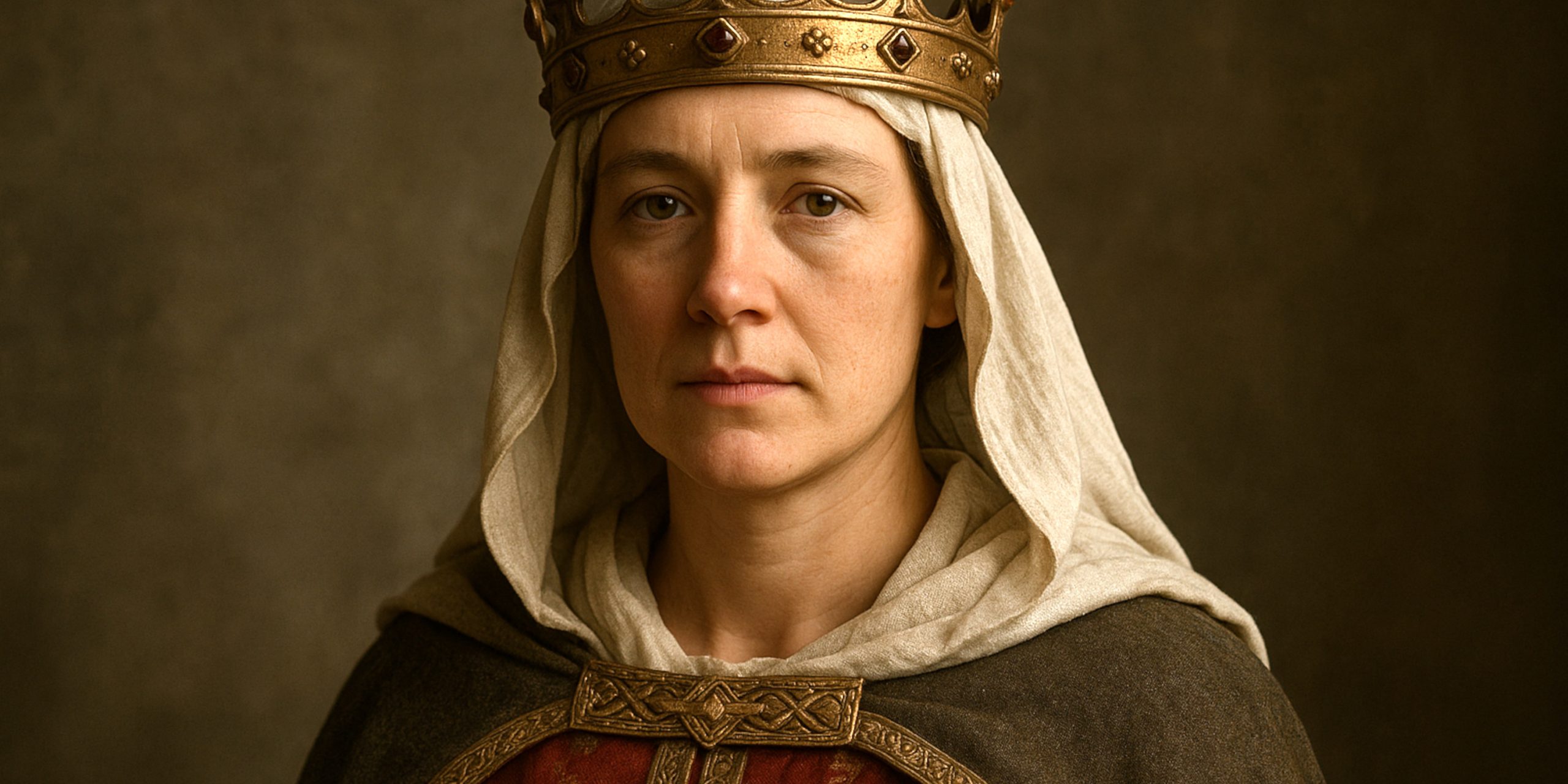
Empress Matilda, daughter of King Henry I of England, was a pivotal figure in the early 12th century. Her contested claim to the English crown sparked the bloody conflict known as The Anarchy, a period marked by political collapse, shifting loyalties, and widespread violence. Though she never ruled as queen in name, her legacy profoundly shaped the future of the English monarchy, particularly through her son, Henry II.
Early Life and Imperial Marriage
Matilda was born in 1102, the first legitimate child of King Henry I and Matilda of Scotland. Her early years were steeped in political preparation. At the age of eight, she was betrothed to Henry V, Holy Roman Emperor, and left England for Germany. She married him in 1114 and assumed the title of Empress, though her political role was largely ceremonial.
Following Emperor Henry’s death in 1125, Matilda returned to her father’s court in England. Widowed and childless, she now became a dynastic asset in Henry I’s plans for succession.
Heir to the English Throne
The death of Matilda’s only legitimate brother, William Adelin, in the White Ship disaster of 1120 left Henry I without a male heir. In response, he designated Matilda as his successor and secured oaths of fealty to her from the English barons. Her second marriage to Geoffrey Plantagenet, Count of Anjou, in 1128 further strengthened her political alliances, though it proved unpopular with many Norman lords due to longstanding rivalries with Anjou.
The Anarchy and Civil War
When Henry I died in 1135, the English crown did not pass smoothly to Matilda. Instead, her cousin Stephen of Blois seized the throne with the backing of a powerful faction of the nobility and the Church. Matilda responded by launching a military campaign to press her claim, supported by her half-brother Robert of Gloucester and key allies in the west of England.
The resulting civil war, known as The Anarchy, lasted nearly two decades. Matilda had moments of advantage, notably in 1141 after capturing King Stephen at the Battle of Lincoln. However, her failure to secure widespread political support in London and her heavy-handed approach in negotiations alienated potential allies.
Later that year, Stephen was released in a prisoner exchange, and the conflict dragged on with no decisive outcome.
Political Acumen and Struggles
Matilda was a capable strategist but often lacked the political tact necessary to maintain broad support. Chroniclers portrayed her as proud and autocratic, a reflection of the era’s discomfort with female rulers. Yet her persistence in the face of setbacks, and her ability to hold ground in Normandy and parts of England, proved her resilience.
Her relationship with the Church was cautious. While she relied on clerical allies, she also clashed with bishops who backed Stephen. These tensions mirrored the broader instability of the kingdom, where royal authority had fractured and local warlords operated with impunity.
Legacy Through Henry II
By the early 1150s, Matilda had ceded active command of the campaign to her son Henry, born in 1133. In 1153, after years of attrition, Stephen agreed to recognise Henry as his heir in the Treaty of Wallingford. When Stephen died in 1154, Henry ascended the throne as Henry II, the first of the Angevin kings.
Though Matilda never ruled England in her own right, her role as a dynastic linchpin was undeniable. She advised Henry in matters of governance and maintained influence in Normandy until her death in 1167.
Contemporary Views and Historical Reputation
Chroniclers of the time often criticised Matilda’s perceived arrogance, using gendered language that shaped how later generations viewed her. However, modern historians have reassessed her as a determined, intelligent, and politically astute figure operating in a deeply patriarchal society.
Her clash with Stephen marked the first time in English history that a woman had come so close to ruling in her own name. The limitations she faced reflect less on her capabilities and more on the rigid structures of power in 12th-century England.
The Seven Swords takeaway
Empress Matilda was a complex and formidable figure. Her struggle for the English crown reshaped the nature of royal succession and paved the way for the Angevin Empire. Though denied a formal coronation, her legacy endured through her descendants and the precedent she set. She remains one of the most significant female figures in medieval English history.










